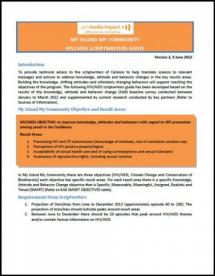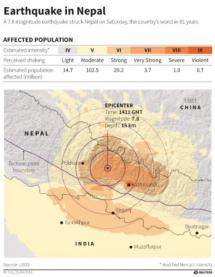My Island, My Community: HIV/AIDS Scriptwriters Guide
This scriptwriters guide was developed to provide technical advice to the scriptwriters of the Entertainment Education drama “Callaloo” on how to translate science into relevant messages and actions to address knowledge, attitudes and behavior changes in the audiences of the Caribbean Islands.
The Callaloo series offers a mix of love, desire, joy, corruption and tragedy following the lives of four families living within the community of Riverbend on a beautiful Caribbean island. Throughout the drama, multiple plots have followed the family members through times of personal and business success and times of despair and the lost of loved ones.
Building the knowledge, shifting attitudes and ultimately changing behaviors will support reaching the objectives of the program. The guide has been developed based on the results of the knowledge, attitude and behavior change baseline survey and supplemented by current research conducted by key partners in the field. The guide analyzes each result area of the project, and identifies the audience, knowledge, attitudes, and behavior of the audience, as well as offering recommendations for key messages and storylines.
Source: PCI Media Impact
Date of Publication: March 25, 2019
SIMILIAR RESOURCES
Tools
Examples
- COVID-19 Communication Materials for the Americas
- Engaging Men in HIV and AIDS at the Service Delivery Level
- Positive Connections: Leading Information and Support Groups for Adolescents Living with HIV
- Toolkit for Transition of Care and Other Services for Adolescents Living with HIV
- Adolescents Living with HIV (ALHIV) Toolkit
- Consolidated Guideline on Sexual and Reproductive Health and Rights of Women Living with HIV
- Optimizing Entry Into and Retention in HIV Care and ART Adherence for PLWHA
- Social Behavior Change Programming for Public Health Emergencies: Lessons Learned from the USAID Zika Response in Latin America and the Caribbean
- Driving the HIV response: Community Guide to the WHO 2013 Consolidated Guidelines on the Use of Antiretroviral Drugs for Treating and Preventing HIV Infection
- Harnessing the Power of Videos


